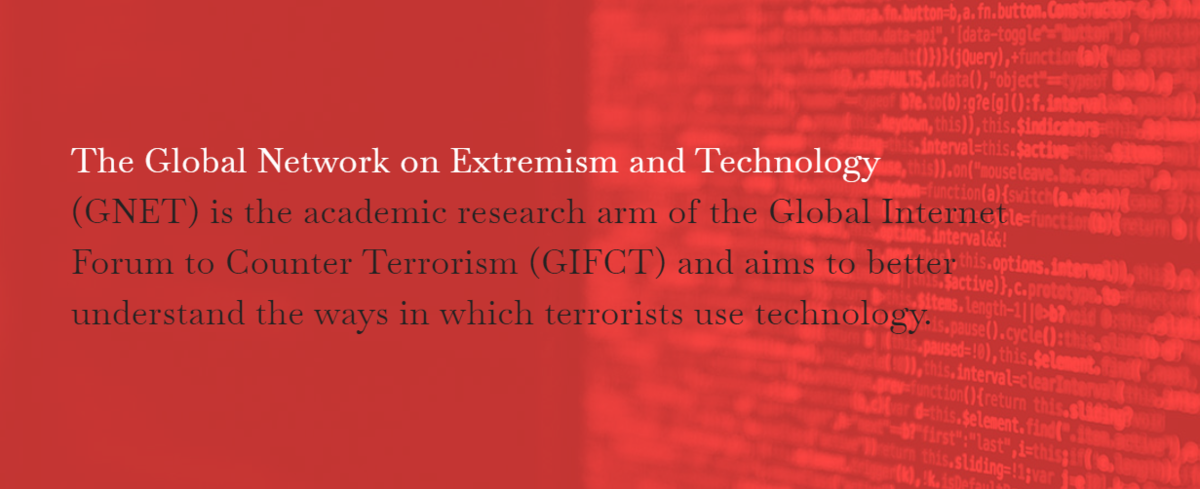
Global Network on Extremism and Technology (GNET)
PRIF is the European core partner for the Global Network on Extremism and Technology (GNET), the academic research arm of the Global Internet Forum to Counter Terrorism (GIFCT). GNET started its work in summer 2020.
GNET aims to better understand the ways in which extremists use technology. Its goal is to promote rigorous academic research which produces policy-relevant outputs aimed at guarding against real world harms. The International Centre for the Study of Radicalisation (ICSR), based at King’s College London, convenes the initiative and its global network of scholars. Besides ICSR and PRIF, the core members of GNET are the Program on Extremism (PoE; George Washington University, Washington, D.C., USA), the Centre of Excellence for National Security (CENS; S. Rajaratnam School of International Studies, Singapore), and the Lowy Institute (LI; Sydney, Australia).
As a core member, PRIF brings together a European network of scholars identifying and researching new trends surrounding extremist use of technology in Europe. The central questions are how violent extremist behaviour and violent extremist online content relates to damage caused offline, how activities to mitigate this behaviour and content interact with normative social concerns, what the regulatory space is for coping with these challenges, and what the methodological, ethical, and legal opportunities and constraints are for research and research-practice partnerships in this area.

GNET’s six research fields are:
- The nexus between online behaviours and offline harms
- Balancing user privacy, state security and human rights
- Emergent and/or less intensively studied forms of violent extremism
- Optimizing academic-practitioner cooperation and data-sharing
- File-sharing and communication platform migration
- Exploring and explaining the limitations of algorithmic measures
The project is assigned to the Research Group Radicalization and Research Department Transnational Politics.
Publications:
- Social Media as a Mirror of External Circumstances: Insights into the Perception of a Radical Group
- The Great Divide? The Online-Offline Nexus and Insights from Research on the Far-Right in Germany
- Early Warning? Opportunities and Limitations of Automated Internet Monitoring
- Salafist Groups’ Use of Social Media and its Implications for Prevention
- The Amalgamation of Virtuality and Reality in Radicalisation Processes
- The Visual Culture of Far-Right Terrorism
- What Makes Far-Right Rhetoric so Dangerous?
